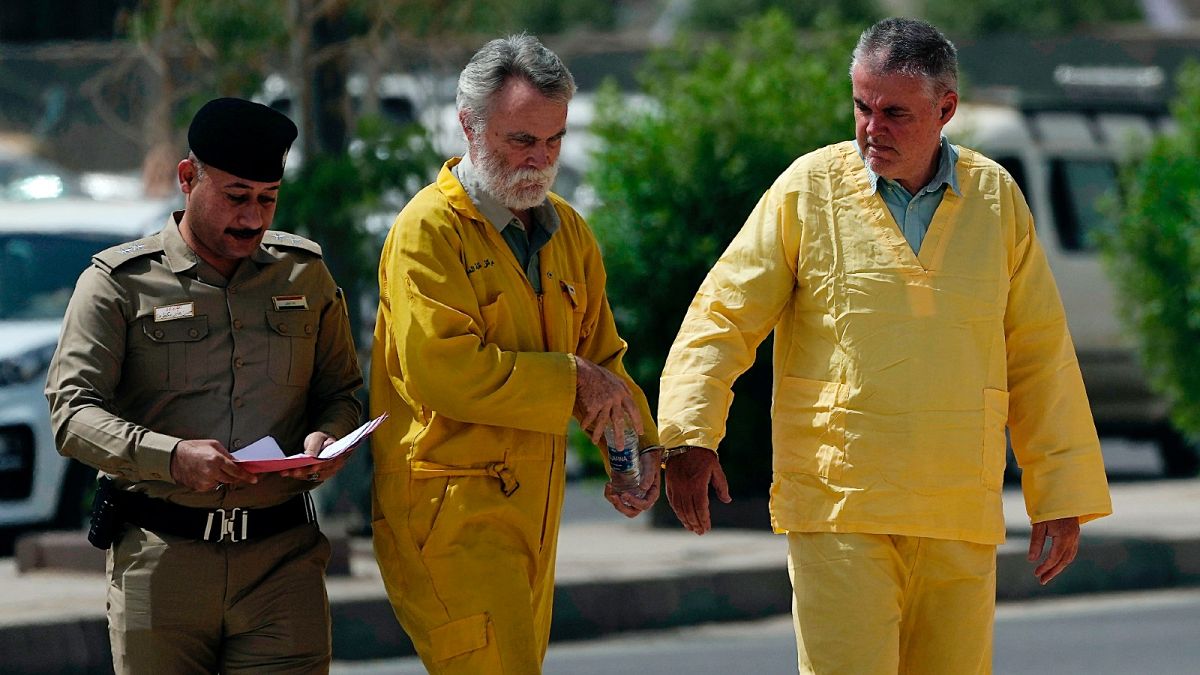A judge in Baghdad found retired geologist Jim Fitton, 66, guilty of criminal intent to smuggle artefacts older than 200 years old out of the country.
A British citizen was sentenced Monday by an Iraqi court to 15 years in prison on charges of attempting to smuggle artefacts out of the country, in a case that has attracted international attention.
The verdict handed down to retired geologist Jim Fitton, shocked the court in Baghdad, including his defence attorney. He and his family have argued that Fitton, 66, had no criminal intent.
“I thought the worst case scenario would be one year, with suspension,” Fitton’s lawyer Thair Soud, visibly shocked, told The Associated Press.
A German national tried with Fitton was found not to have criminal intent in the case and will be released.
But Judge Jabir Abd Jabir found that by picking up the items, found to be artefacts dating older than 200 years, according to a technical government investigation, and intending to transport them out of the country, Fitton had criminal intent to smuggle them.
The trial has grabbed international attention at a time when Iraq seeks to open up its nascent tourism sector.
The two men first appeared in court on May 15 wearing yellow detainees' uniforms, telling judges they had not acted with criminal intent and had no idea they might have broken local laws.
Fitton said he “suspected” the items he collected were ancient fragments, but that “at the time I didn’t know about Iraqi laws,” or that taking the shards was not permitted. Fitton said as a geologist he was in the habit of collecting such fragments as a hobby and had no intention to sell them.
The judge, however, did not consider Soud’s arguments that laid out Fitton’s ignorance of Iraqi laws and the value of the items he picked up. Fitton and the German national, Volker Waldman, were arrested at Baghdad's airport on March 20 after airport security discovered the items in their luggage. They had been part of a tourism expedition around the country’s ancient sites.
Fitton’s family grew worried when he did not arrive on a scheduled flight back to Kuala Lumpur, where he resides with his wife, on March 20. They later learned that Fitton, a well-travelled geologist for oil and gas companies, had been taken to an airport holding cell where he was still being detained, Fitton’s daughter Leila told the AP last month.
Frustrated by perceived inaction on the part of the British Foreign Office to intervene and assist in Fitton’s case, his family started a petition that has garnered over 100,000 signatures. The British diplomatic mission in Baghdad has not commented on its involvement in the case and the British consul in Iraq, who attended the court session Monday, left following the sentencing without making any comments.
In total, 12 fragments of pottery and other shards were found in Fitton’s possession by Iraqi authorities, all of them collected as souvenirs, Fitton’s family says, during a group tourism expedition to Eridu, an ancient Mesopotamian site in what is now Dhi Qar province.
Waldman’s defence team has said the German tourist had been carrying the pieces for Fitton but that he did not pick them up from the site. Both men were charged with smuggling based on the country’s antiquities laws.
Soud said he intends to appeal the sentence immediately. It is not clear if Fitton can serve out his sentence in his home country as this would require a bilateral agreement between Iraq and the UK.
Based on Iraqi law, both men could have faced the death penalty, an outcome that legal experts said from the beginning was unlikely.
